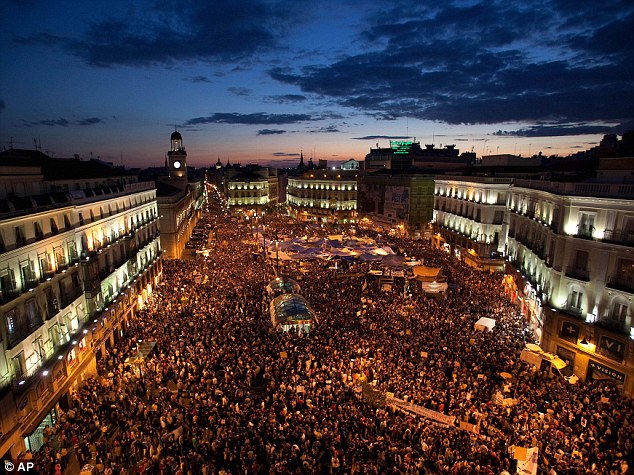In the avalanche of studies, reports, opinions, tweets, leaks and desperate utterings on Greece and Europa, would it be an idea to start to sort out more calmly and more decisively what we as European citizens actually agree on and where the more important differences lie. And to try to cut to the center of the debate, since there is little time to loose?:
If I may give it a shot to describe what we may agree on, this may give space for another dialogue on our European shared future:
- a) Europe is much larger in history, scope, past experience and future ambition than the current ‘debt overhang crises’ or ‘euro’ stories, however crucial treating debts and having a solid European currency may be.
- b) The common currency project of the ‘euro’ is in the eyes of many ‘unvollendet’. It has been launched on incomplete foundations, notably with too little sense of the necessity for internal redistribution mechanisms, given the heterogeneous nature of the European MS economies.
- c) The transformations and possible convergence of Member States’ economies into a European internal market and monetary union – which would help us face some of the major challenges of globalisation more collectively- are very complex processes indeed. They should be therefore be undertaken with the utmost care to accommodate economic fundamentals; with a realistic sense of Europe’s deeprooted cultural diversity and with respect for democratic ownership. The European transformations are in their nature slow change processes, which take time, for proper dialogue and genuine adaptation. They should be moved with care and not be shoved down people’s throats.
- d) Europe will only work if more Europeans than is the case today feel Europe is ’theirs’, and European development pertaining to their future. However hard many people in Brussel may work (I am not a Brussels basher), however committed some European technocrats carry out their duties: if you do not take along more people in drawing up, debating, executing and continuously energizing the European programs, these programs are bound to fail in the end.
- e) Greece occupies so many people’s minds because the Greek case demonstrates the deeper challenges and differences in Europe. Like any other country, Greece’s political economy has its own historical difficulties which independently of being in or out of the eurozone need to be addressed. Many Greeks feel this too, but are now put too much with their backs against the wall to discuss more openly where they consider things need to change.
- f) The Greek debt crisis has vastly complicated things. The debt overhang has been handled inadequately, too inflexibly by the creditors, but also unsmartly in times by the debtors. Most economists agree that the Greek debts are probably impossible to repay and the longer you postpone making that diagnosis official the worse the humanitarian disaster will become. The austerity policy has in the Greek case only aggravated things, not because austerity policies are always bad, but because austerity measures in times of a recession are not the smartest of policies. To acknowledge debt relief may in the end be necessary, contitional on reform is of course sour for some who have lent money to Greece or thought to make money in the crisis, but postponing judgement on the matter will only make things worse. (In addition: the balance of who has really lost and gained in this crisis is still not completely clear. Creditors in early phases also gained a lot and their ultimate ‘balance’ may not be as bad as is being suggested.
- g) So perhaps the best that could happen to Europe is if:
- All the angry mud throwing (however emotionally justified one may feel) would be put to a halt.
- All parties involved would use their best energy to agree on a clear, shared set of rules of proper governance for everybody in the EU and in the eurozone.
- A clear development agenda towards more convergence of fiscal systems with mechanisms for redistributions in case of need in one of the MS, on investment and stimulation measures for economies would be advanced. Whatever you may think of the role of the creditors or debtors: as citizens we are now wasting far too much time on screaming, shouting, polarizing, and destroying any possibility for calm dialogue. Using all that energy to move beyond would be better, even if it requires taking a very deep breath. This crisis which is not a Greek crisis but a European constitutional one, and could be turned into a better leverage for a fairer Europe in which everybody would take his responsibility….
- For being in the ‘eurozone’ equally, a set of newly agreed on, shared rules of the game would be discussed and then applied, rules which all the 28 EU member states should decide on anew. Membership of the eurozone should then still depend on being able to play things by these rules, but the rules would be revisited to see which elements are lacking.
- As long as MS would not be capable of joining the eurozone agreed on concertive efforts and constructive assistance would apply so MS could move towards entering. This was the original idea of the euro project anyway, but because of the too narrow configuration at its origin, the process has become as tense as it now is with the original lacking mechanisms exposed. (Mind you, the Greek crisis is not so much a ‘euro’ crisis, it is a debt overhang crisis. But in all the kabale, the serious attempts to have a calmer and more realistic discussion of the pros and cons of Greece being in the eurozone at this moment in time are lost. Equally, too little progress is made in the necessary discussions about the ‘real economy’: on how Europe’s economies could further develop and strengthen, instead of engaging in the negative spiral of mistrust, aggressive action-reaction chains and brutal misrepresentation and blame games.
We live in decisive times, the Greek crisis is superimposed on other, much more fundamental movements in history: of vast economic transformations, of necessary adjustments in powerrelations, of fundamental questions around our political institutions and democracy. Let’s clear the desk to be prepared to face such changes together and not act like desperate people on the verge of drowning.
Godelieve van Heteren (July 16, 2015)

